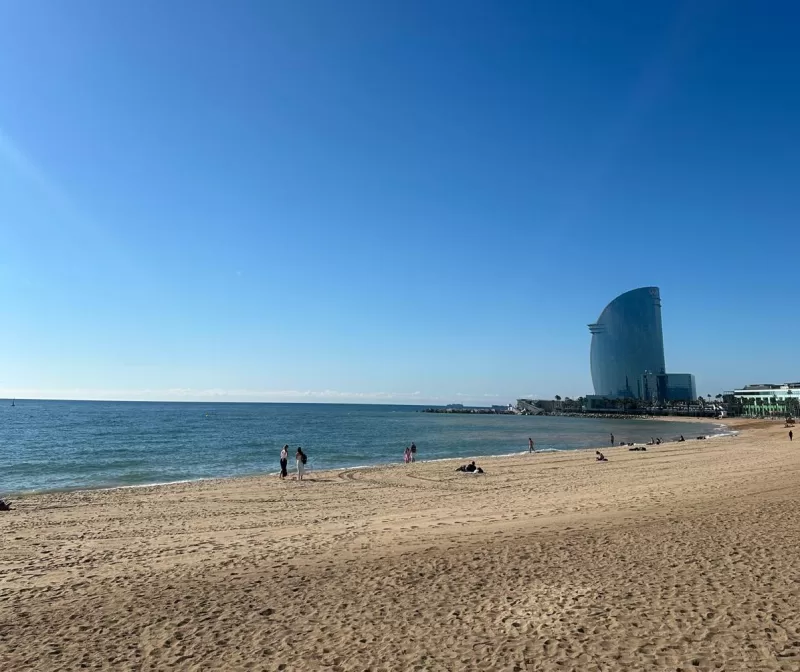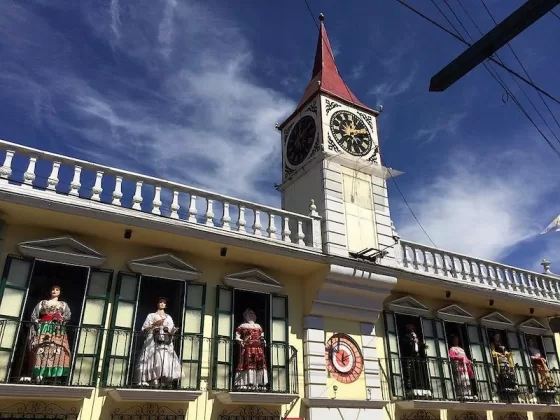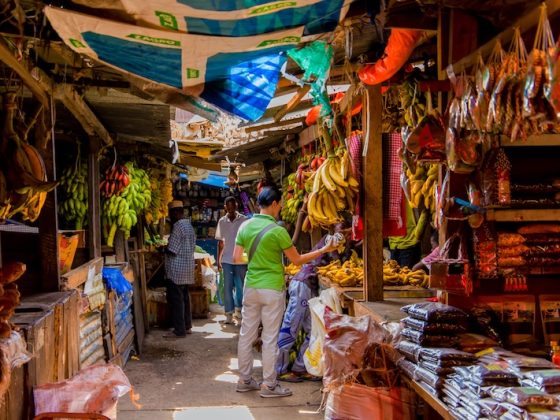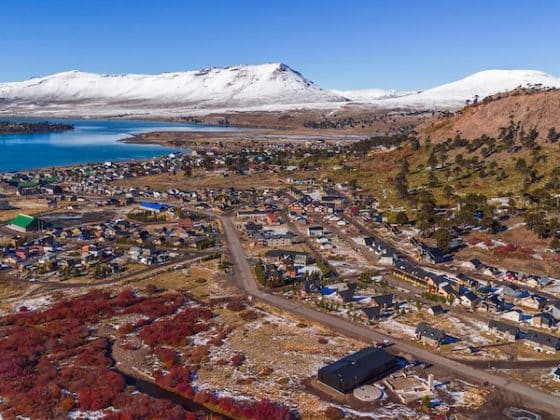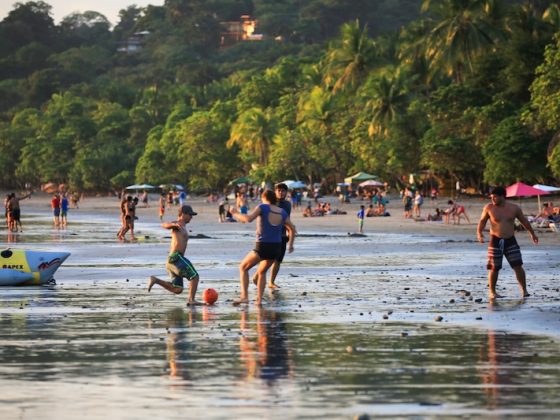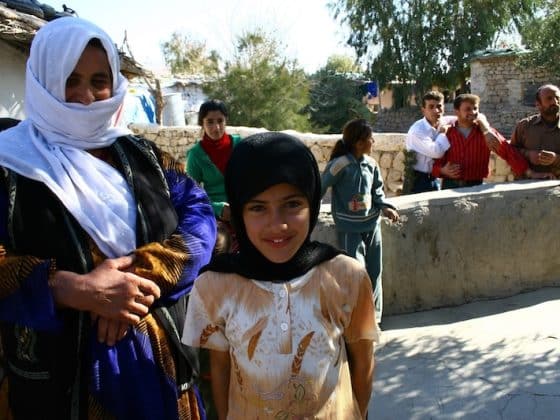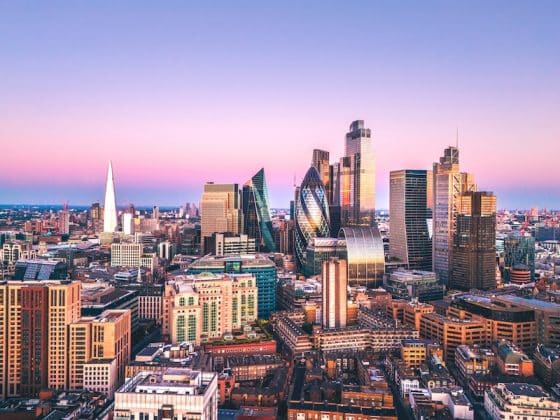Happiness is hard to measure, but to me, it looks like a late-spring afternoon in Barcelona. The kind where light spills golden across the tiled rooftops of a hillside neighborhood. Where children’s laughter echoes through the old alleyways of the historic center, and where the breeze carries hints of saffron, orange wine, and the hum of conversation from open kitchens and terrace tables.
The global surveys are beginning to catch on. Barcelona now features among the top ten happiest cities in the world, praised for its quality of life, climate, walkability, community, and culture. In the most recent Global Happiness Index by the Institute for Quality of Life, the city scored exceptionally high on social connection and access to nature—two of the most strongly correlated indicators of long-term wellbeing. But lists alone cannot explain the alchemy. To understand what makes this city so quietly magnetic, you have to feel it for yourself—and more importantly, live it.
Living in Barcelona
I arrived in Barcelona after a decade of living across Spain’s islands and capital, as well as stints in the UAE, West Africa, and the Netherlands, and long before that, the high-functioning grind of London. For someone who has lived in so many places, I can say without hesitation that Barcelona is the happiest place I’ve ever felt at home. My journey here was not one of escape, but of evolution. I wanted not just a change of scene, but a change of rhythm. Something more human, more grounded, more mine.
Barcelona, it turns out, is not a city that shouts. It hums and lingers, offering joy in moments so small they might be missed entirely in faster-moving places. Quite possibly, it’s the closest I’ve come to finding a city that reflects back what it means to live well.

Light and Space: The Everyday Mood Shifters
There’s a peculiar kind of grace in the way Barcelona receives the sun. In the early hours, it brushes softly over the rooftops, warming stone and spirit alike. Later, it bathes the city’s crescent beaches, where locals stretch into the day with swims and siestas, or simply sit, toes in sand, watching the line where sky meets sea.
The city’s light has become my own quiet ritual. Mornings begin with it spilling across the tiles of my apartment, where I drink tea and take in the stillness before the city fully wakes. I often walk before working—not in a power-stride, time-is-money kind of way, but slowly, letting the golden hues and briny air settle something in me.
In Barcelona, light isn’t just aesthetic. It’s emotional architecture. It makes room for presence, and lifts the ordinary into something worthy of pause.
Studies often show a strong correlation between natural light exposure and reduced levels of anxiety and depression—something Barcelona seems to offer in quiet abundance, not as an amenity but as a baseline of daily life.
And light is only part of the equation. Space matters, too. Unlike more compressed cities where one is constantly jostled by elbows and noise, Barcelona has an unhurried spaciousness. The city seems to breathe between its buildings. There is room for solitude without isolation, and for stillness without silence.

Designed for Humans, Not Cars
Urban flow matters more than most people realize. And in Barcelona, the flow is human-sized. Superblocks are quietly revolutionizing the way people interact with their streets. Whole grids of once car-clogged traffic have been redesigned as people-first zones—playgrounds, gardens, art installations, community spaces.
It’s not unusual to pass a chess match unfolding on a bench, a spontaneous dance rehearsal, or schoolchildren drawing chalk murals in a space where taxis used to queue. This is city planning that breathes.
There are days I walk through my neighborhood and am greeted five times before I arrive at my destination. A nod from the florist. A wave from the cafe owner who already knows my order. A fist bump from the trainer at the gym who shouts encouragement in Catalan. In London, this kind of recognition was rare. In Barcelona, it’s rhythm.
This is a city that insists on proximity. Not just of distance, but of interaction. It creates intimacy without confinement. The built environment encourages trust, and trust, in turn, fosters ease.

Read more like this: Moving Abroad to Reinvent Yourself
The Catalan Equation
To outsiders, Catalonia can seem closed. The language is different, and the politics are complex. But behind the reserve lies a deep commitment to community, and an unexpected warmth that reveals itself slowly, then all at once.
I’ve shared meals where every dish came with a family story. I’ve been invited into homes not as a novelty guest, but as a participant. Yes, there is a fierce pride here—in language, in landscape, in legacy—but it’s precisely that sense of rootedness that creates space for newcomers. Catalans do not perform welcome. They embody it through consistency, time, and genuine investment.
Even the independence movement, Catalonia’s long-standing desire for self-determination from Spain, is often painted as divisive, is grounded in ideas of fairness, transparency, and cultural preservation. It’s not about closing ranks; it’s about ensuring identity is never diluted by indifference. And in a globalized world, that level of intention is rare. Hospitality here doesn’t declare itself. It offers you a chair, pours the wine, and continues the conversation.
A City of Foreigners Who Call It Home
Roughly 30% of Barcelona’s residents were born abroad. It’s one of the city’s great, quiet strengths. People come here from everywhere—Argentina, Morocco, Italy, Ukraine, Brazil, Japan—each adding a thread to the city’s social fabric.
But what makes Barcelona special is not just its diversity. It’s how seamlessly that diversity integrates. Expat cafes sit alongside traditional vermuterías. Street festivals are layered in languages. Kids switch from Catalan to English in a single conversation.
When I arrived, I found myself slowly woven into the texture of the city. It wasn’t through organized meetups or curated events, but in the informal rhythm of everyday life — conversations with neighbors, chance encounters at local cafés, the quiet camaraderie of familiar faces on familiar streets. There’s a porousness here—a sense that while people come and go, everyone leaves a trace. It teaches you to appreciate the city not as a possession, but as a shared gift.
Some people are here for a season. Others for a lifetime. You learn not to hold too tightly, but also not to take it for granted. Every farewell deepens the gratitude of staying. Every new arrival reminds you why you chose to be here in the first place.
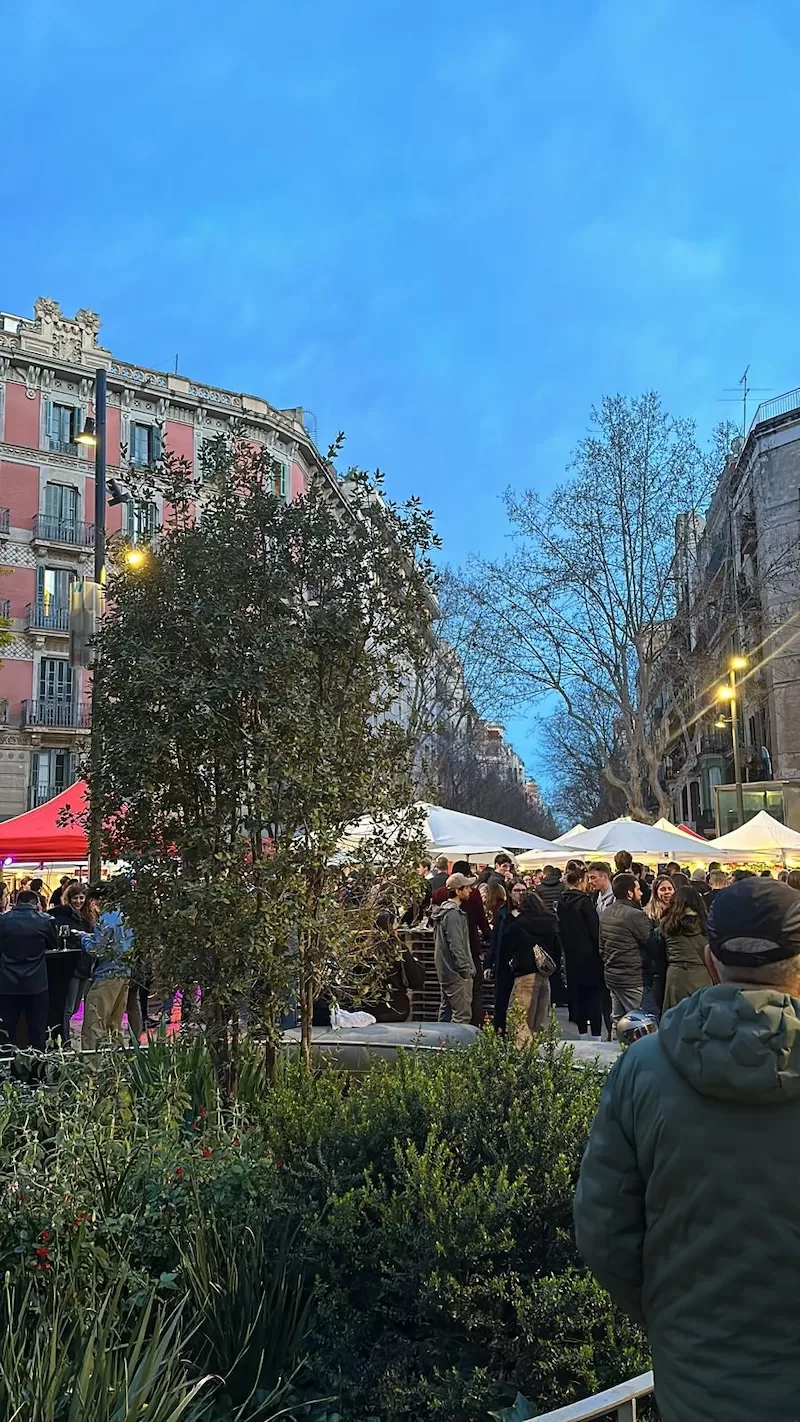
Soulful Efficiency
Barcelona gets things done. But it does so without sacrificing the self. The workday here, while productive, tends to start later, end earlier, and be punctuated with something called living. Lunch isn’t inhaled over email—it’s eaten, often outside, sometimes with wine, and always with pause.
I’ve worked in both worlds. In London’s Canary Wharf, the metrics were urgency, visibility, acceleration. Here, they are focus, creativity, and sustainability. I now write, research, and collaborate on projects that excite me, but I do so without burning out.
There’s time to think. To walk between meetings. To recalibrate. In this city, ambition isn’t incompatible with grace. You can strive and still have a soul. And perhaps more than anything, this gentler pace has given me the room to trust my own instincts again. To make decisions from clarity, not just momentum.
The city’s commitment to well-being extends beyond the professional. Barcelona has cultivated a vibrant culture of movement—one where sport is woven into everyday life. From early-morning running crews that wind through the city’s parks to packed padel courts (a hugely popular Spanish racket sport that blends the energy of tennis with the intimacy of squash) echoing with friendly rivalry, there’s a collective understanding that energy and ease are not opposing forces. It’s not about performance for the sake of status, but participation for the sake of joy. Here, the balance between enjoyment and effort isn’t just encouraged—it’s embedded.
Nature at the Edge of Everything
Barcelona is hemmed in by beauty. To the west, the Collserola hills roll in soft green waves, inviting hikes and trail runs that reset the senses. In the north, the Costa Brava begins its jagged ascent—a stretch of coastline so cinematic it hardly seems real. Meanwhile, to the south, vineyards sprawl and beaches flatten.
And then there is the sea. For me, it is always the sea.
It anchors the city. Even when you can’t see it, you know it’s there—that quiet presence, always a ten-minute metro ride away. Some evenings I walk across the marina just to listen to the tide, to watch the fishermen pack up for the night, to remind myself that the world is wider than my to-do list.
This access to nature doesn’t just improve life but defines it. It creates a rhythm where restoration isn’t a luxury.
And it’s not only the grand landscapes that matter. Even the micro-greenspaces—the jasmine in a neighbour’s courtyard, the pop of bougainvillaea against a stone wall, the breeze funneling through the narrow streets—serve as subtle resets. Beauty is not rare here, it’s ambient.
Barcelona also ranks among the top European cities for green space access per resident, according to recent EU findings—one more reason nature here doesn’t feel aspirational, but integral.

A Place That Invites You to Stay
I don’t know if I’ll live in Barcelona forever, but that’s part of what makes the city so cherished by those who pass through it. There’s an awareness here that moments are precious. That friendships might be temporary, but they can still be real. That joy doesn’t have to be permanent to be meaningful. Barcelona isn’t a city that demands commitment.
In a world obsessed with acceleration, Barcelona reminds me to walk slower. To notice. To stay in the sun a few minutes longer. And somehow, in doing less, I feel more. That, I think, is what happiness really is.
Find out how Spain inspires self-discovery
